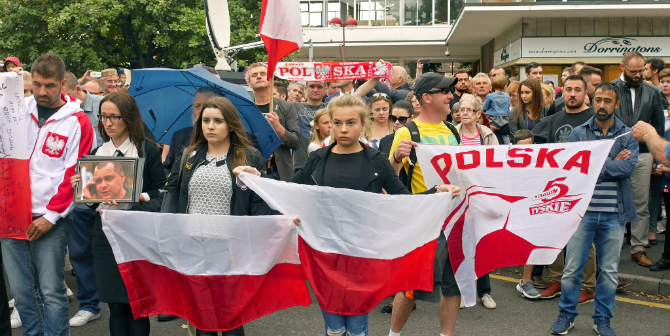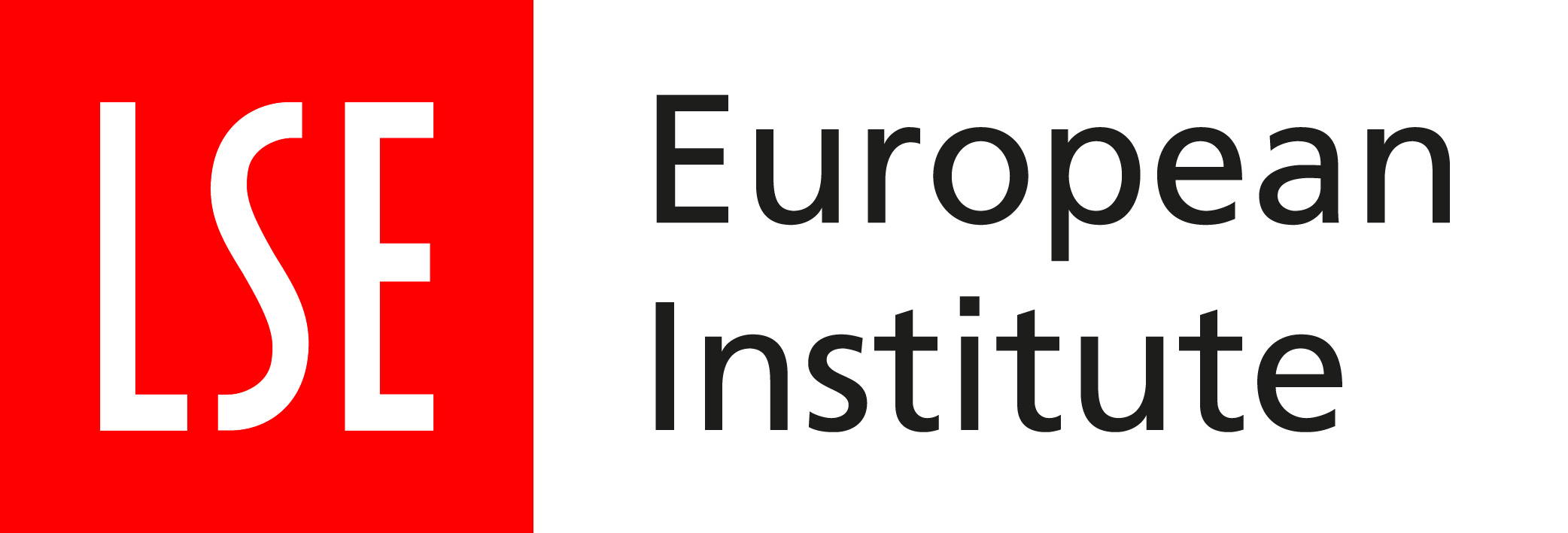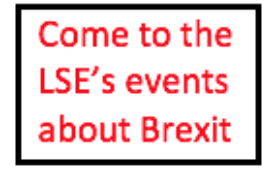 With migration as a central issue, the Brexit debate reinforced a climate of antagonism towards Poles and other Central-Eastern Europeans. But the expression of such attitudes with impunity has been a part of the political and media discourse long before the referendum. Dagmar Rita Myślińska writes that what appears to be a post-Brexit wave of hate crimes against Poles, in particular, has brought to the foreground the dangers of accepting prejudices and racism as a normalised part of discourse, while revealing some insights about the nature of white ethnic and national identity in the UK.
With migration as a central issue, the Brexit debate reinforced a climate of antagonism towards Poles and other Central-Eastern Europeans. But the expression of such attitudes with impunity has been a part of the political and media discourse long before the referendum. Dagmar Rita Myślińska writes that what appears to be a post-Brexit wave of hate crimes against Poles, in particular, has brought to the foreground the dangers of accepting prejudices and racism as a normalised part of discourse, while revealing some insights about the nature of white ethnic and national identity in the UK.
Climate of antagonism before the referendum
As I had noted in an earliest post, for many Brexit supporters, migration has been a central issue – in large part due to unwarranted fears stoked by politicians and the media. Far from engaging in an informed and participatory debate, both sides of the referendum debate had been focused on fear-based arguments: Leave supporters on the economic and identity threat that the existing (mostly from Central and Eastern Europe) and anticipated (from Turkey and as a result of the refugee crisis) immigrants would cause if the UK were to remain in the EU; and Remain supporters on the economic disaster that would result if the UK were to leave. Taking their cue from politicians, the media has been inflaming the debate with further incendiary statements, often lacking much factual support. Leavers often resorted to xenophobic messages targeting, in particular, Central-Eastern European migrants, and especially Poles, normalising and rendering more acceptable overt and widespread scapegoating of this migrant population.
But such xenophobic attitudes, and the lack of stigma associated with voicing them did not arise overnight in the context of the Brexit argument. Instead, Poles have been perceived as second-class European citizens and targeted as scapegoats by some right-wing politicians, the media, and the public since before the time of Poland’s accession to the EU in 2004. Arguments for limiting their post-accession mobility to EU-15 states similarly relied on unfounded predictions and animus, as the existing member states moved swiftly to limit Poles’ access to the free movement right for up to seven years – either directly through restrictive immigration measures or indirectly (as the UK had done) through limiting their access to social benefits.
The Polish plumber stereotype arose – of cheap, exploitable labour responsive to increasingly flexible labour markets in the west, and threatening to local labourers. After the post-accession Polish workers started to arrive in the UK, right-wing politicians, led by UKIP, and the media were quick to portray them as criminals and welfare spongers, despite lacking factual support for such assertions. David Cameron and other UK politicians have explicitly referred to Poles as the source of an alleged exploitation of the UK’s social welfare system by immigrants and of driving down living standards. Despite consistent findings that post-2004 migration has benefited the UK economically, such negative views have persisted. Expressions of prejudice, negative stereotypes, and racism against Poles soon became tolerated and normalized in political, media, and public discourse. Poles also increasingly became targets of hate crimes, prejudice, and discrimination – long before the Brexit debate.
Post-Brexit racism and hate crimes
This climate of long-standing antipathy towards Poles and other groups perceived as not belonging to the British norm found fertile ground for further expression after the referendum. Since June 23rd, there has been a general rise in hate crimes – reported hate crimes rose by 57 percent in the four days following the referendum; within a week of the referendum, 331 hate crime incidents had been reported (compared to the weekly average of 63). The abuse had peaked on 25 June – the day after the result was announced – when 289 hate crimes and incidents were reported across England, Wales and Northern Ireland. A further 3,001 reports of hate crimes were made to police between 1 and 14 July – on average, more than 200 per day. In the last week of July, figures released by the National Police Chiefs’ Council indicated a 49 percent rise in incidents when compared with the previous year. After the first week of September, police data indicated rates14 percent higher than at the same point last year, leading to concerns over a lasting rise in hate crime.
 A vigil for Arek Jóżwik in Harlow, Essex. Photo by Alan Denney: CC BY-NC-SA 2.0.
A vigil for Arek Jóżwik in Harlow, Essex. Photo by Alan Denney: CC BY-NC-SA 2.0.
Poles have been victims of many of such post-Brexit incidents – apparently more than other European migrant groups – including the following:
- “F*** off to Poland” letters distributed in Tunbridge Wells,
- crowd chanting on a London street, “First we’ll get the Poles out, then the gays!”,
- cards saying “Leave the EU/No more Polish vermin” in both English and Polish left outside a school and posted through letterboxes in Huntingdon,
- racist graffiti on the front entrance of the Polish Social and Cultural Association in London,
- Poles in various UK cities being told to “get packing”, that they “shouldn’t still be here” after the British “had voted to be rid” of them, and that they should be “going home now”,
- several assaults on groups of Polish men in Essex, one of them fatal,
- a gang attack in Leeds
Poles, of course, have not been the only targets of such crimes. And the post-Brexit expressions of prejudice and racism have targeted not only immigrants, but others perceived as outsiders to the white, Christian, British norm. Reports of hate crimes against more visible minorities, including Muslims and British nationals of minority ethnic origins, have spiked recently. For example, swastika signs have been found in Armagh, Sheffield, Plymouth, Leicester, London and Glasgow; a man in Glasgow was seen ripping off a girl’s headscarf and telling her “Trash like you better start obeying the white man“; and black British nationals were told to go back to Africa and make the UK white again.
Many of the victims of such attacks report that their perpetrators had cited Britain’s decision to leave the EU as the justification for their actions, apparently feeling empowered by the referendum outcome to express hatred toward all groups perceived as not belonging here. The social media site PostRefRacism, which has been compiling incidents of post-Brexit hate crimes, indicates that more than half of the reported incidents have involved references to the referendum.
The role of race
Poles’ experiences in the UK have been complicated by their whiteness. Although being white can help Poles to find employment opportunities and to be less visible as an outsider group in the UK, it can also make expressions of prejudice against them more culturally acceptable than they would be against non-white groups. It is difficult to imagine, for example, UK political and media discourse filled with consistent references to a visible minority group as criminal. Whiteness can also make it more difficult to acknowledge words and actions against Poles as racist. For example, following the fatal attack in Essex, some locals sought to play down allegations of hate crime, instead attributing the incident simply to unruly teenage behaviour. The term “racism” has been very rarely used in migration or equality policy contexts or discourse to encompass whites. As the recent attacks have shown, however, being Caucasian (white) does not insulate one from racism.
Identity and belonging are not only actively contested between racial groups, but also within them. Thus, whiteness can be most contested at its edges – between the white group that constitutes the norm at a given time and place, and those whites who are perceived as outsiders and the symbolic Other in some ways. White voters supported Brexit much more than non-white voters did: 53 percent of white voters voted to leave – as opposed to 33 percent Asian voters, 27 percent black voters, and 33 percent mixed-race voters. It also appears that the perpetrators of post-Brexit violence against Poles have tended to be predominantly white British. And white British people expressing anti-EU immigrant views have not all come from excluded socio-economic classes, as is often assumed. For example, a party celebrating Brexit at an expensive restaurant in London refused to be served by an Italian and demanded an English waiter, and an online booking for another top London restaurant included the demand “I want British waiter please. Don’t send any Europeans to my table.”
Although some have attributed this rise in xenophobia and migrant scapegoating (in the UK and across the western world) to economic stagnation, rising social inequality, and popular disillusionment with the ruling elites, and to sentiments exploited by politicians and the media, such explanations might be too closely circumscribed. Furthermore, many of those who had voted for Brexit and who oppose migration the most came from predominantly white British, ethnically homogeneous areas, having had little opportunity for personal interactions with migrants. As Eric Kaufmann notes, they were motivated not so much by economic or personal concerns, but by factors such as their ethnicity and national identity.
Post-Brexit attacks against not only Poles but also visible minority groups also bring to the foreground the fact that all outsider groups share some commonalities.
It is true that all modern waves of migration to the UK had been met with some resistance and fear of outsiders perceived as a threat to not only the local economy, but also British culture and identity – whether it was the Irish in the 1800s, Jews a century ago, or those from the crumbling empire after WWII. However, in the past, Britons have been able to express tolerance towards immigrants as individuals, accepting them into local communities, while simultaneously exhibiting hostility towards the idea of immigration as a whole. White Britons’ reactions to mobile Polish workers have been more negative, it seems, especially post-Brexit, for reasons that demand further scrutiny.
Paths forward
Popular attitudes cannot be transformed overnight, but changes in political and media discourse can lead the path toward widespread acknowledgment of the fact that it is just as unacceptable to speak or act against white minority groups on account of their ethnicity as it is against non-white or non-Christian groups on account of their race or religion. Although some key politicians who had expressed negative views toward Poles or migration more generally – including May, Farage, and Cameron – have condemned the post-Brexit wave of attacks, public officials need to take broader steps to not only condemn racist speech and actions but also reshape political discourse. Holding the media accountable for incendiary xenophobic messages is also in order. Both government officials and the media should also educate the public about the ramifications of the referendum outcome as British people are the least knowledgeable about the EU and it appears that some perpetrators of the post-Brexit attacks have incorrectly equated Brexit with the immediate departure of all foreigners.
Post-Brexit attacks against not only Poles but also visible minority groups also bring to the foreground the fact that all outsider groups share some commonalities. Despite some evidence of uneasy relations between Polish migrants and non-white or non-Christian groups in the UK, with Poles not being very tolerant of other minority groups, and minority British groups resenting some white migrants, much can be gained from coalition-building between groups that do not belong to the white British norm. Furthermore, care must be taken that white hate crime victims do not eclipse other hate crime victims in governmental and media attention. There is a danger that now, once the expressions of anti-Polish sentiment have gone too far to be palatable to politicians and the media, hate crimes against other groups are being overlooked or minimized as if they were any less appalling. No matter who the victims are, all hate crimes are egregious.
This post represents the views of the author and not those of the Brexit blog, nor the LSE. Image
Dagmar Rita Myślińska is a Lecturer at the University at Albany in New York, and in her third year of PhD programme at the LSE’s Law Department. Her research focuses on migration and equality and relies on critical race theory and whiteness studies theoretical frameworks.








Unfortunately prejudice has always been a part of humanity and if you look for isolated examples of it in any country and any society on earth, you will find it. Portraying it as a major part of those country’s citizens thinking is an easy thing to do, you don’t need to be able to demonstrate that what you are saying / implying is fact, generalisations will do and this article is a shining example of it.
Nasty stuff.
Im born and bred here but if I hear racism then I will deal with it the same we did in the 80s and 90s, they soon kept their mouths shut after that! bring the riot back and if the police want to keep on protecting these Nazi scum they will fall too.
Great article, its nice that someone can express Poles feeling in words.